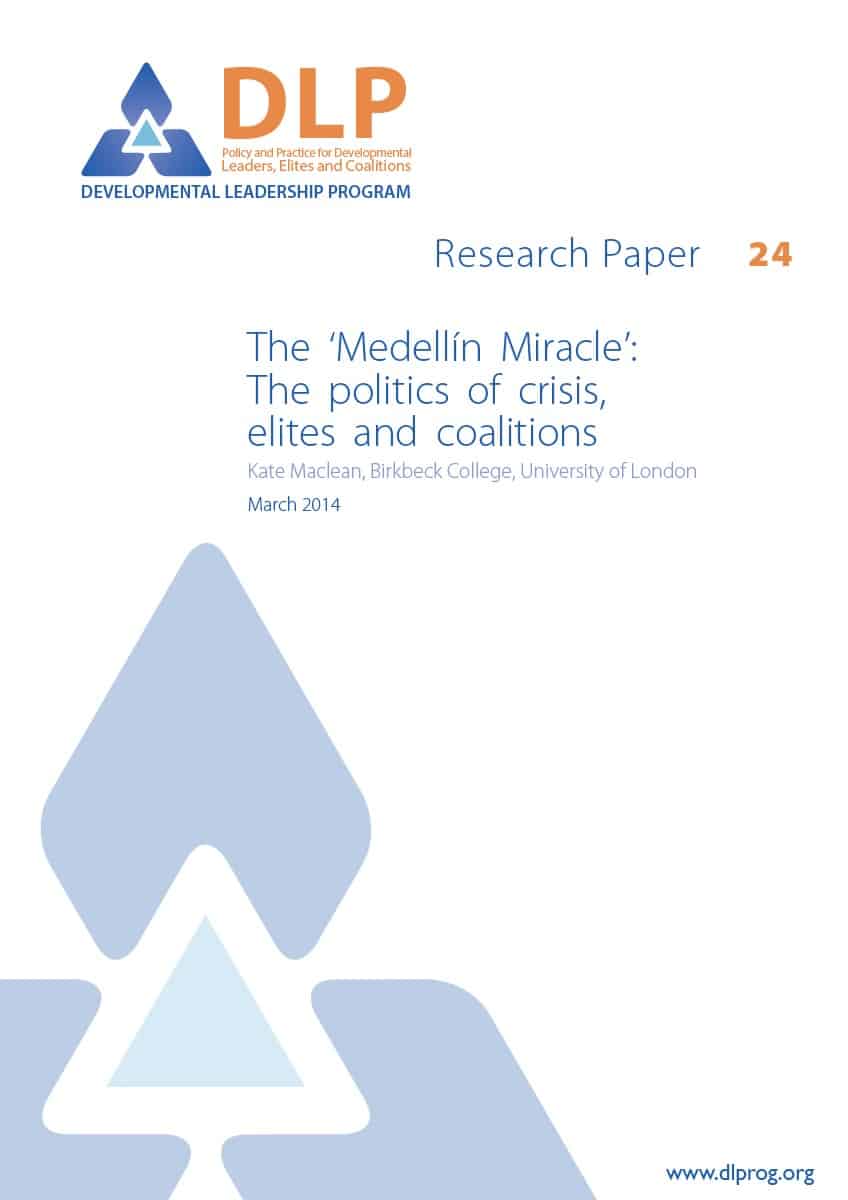The ‘Medellín Miracle’ is the term popularly used to describe the dramatic reduction in violence in Colombia’s second-largest city. It reached crisis point when, with the highest murder rate in the world, it was declared ‘the most violent city on earth’ in 1991.
It is well known that ‘critical junctures’ can rupture the political fabric, and transform social relations. However, the way these junctures are used by political actors, and how the spaces that open up in the wake of crises function to facilitate change is underexplored.
This study draws on interviews with Medellín’s political, business and civil society leaders and uses a structure-agency analysis to examine the politics behind the city’s remarkable transformation. It asks how such critical junctures can best be used to advance democratic, peaceful and equitable socio-economic development in a conflict situation.
Key points:
- External Actors: External political actors, whether at national or international level, are crucial factors in processes of change.
- Enacting the agenda: Fora to discuss and develop agendas are vital, but not sufficient to implement change. Coalitions and compromise are crucial factors for policy implementation.
- Elites are crucial in processes of change: Forming coalitions with the powers-that-be is a necessary element of enacting change, but can also introduce tensions into the process.
- Politics is as important as policy: Political evolution that alters who has the power to define an agenda, sit at the table and enact change is as important as the direct impact of certain projects and the policies themselves.









